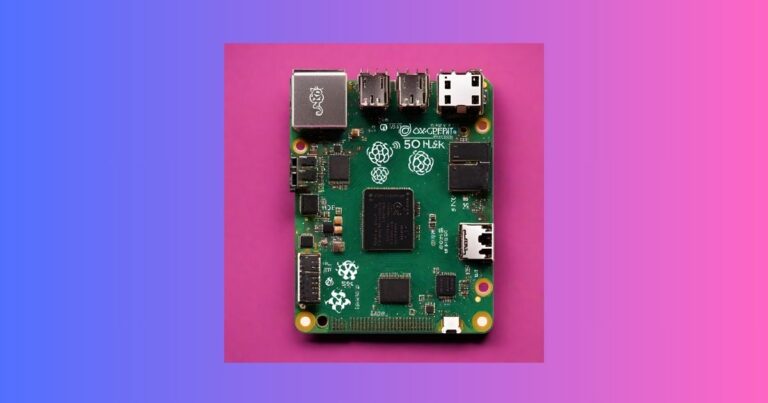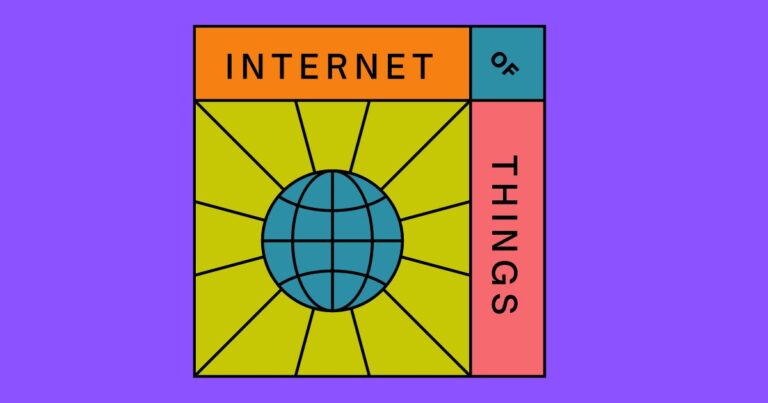Harnessing Quantum Computing Phenomena: Redefining the Future of Computing Potential
Quantum computing represents a cutting-edge realm of technology with the potential to completely transform our understanding of computational capabilities. Through tapping into the enigmatic principles of quantum mechanics, this revolutionary field is poised to unlock uncharted frontiers in computing power, paving the way for accomplishing tasks once deemed unattainable. This blog post aims to offer a comprehensive introduction to quantum computing, delving into its prospective applications and providing guidance on initiating exploration into its boundless possibilities. To the point, people who live in fictional reality don’t know they are the product of supercomputers. This branch of computing is still on paper. We do know how it might affect things like online privacy though, strap in because quantum computers can ruin your life in more conceivable ways. We may not be too worried about your privacy because a powerful enough quantum computer can render modern encryption useless.
What is Quantum Computing, anyway?
Quantum computers belong to an entirely separate class of devices, they utilize the principle of quantum mechanics to perform complex calculations. Classical computers use bits to represent information set either to 0 or 1. Get a 16-bit processor that can register and process 10 bits of data at a time. Quantum mechanics is a branch of science that deals with how energy and particles behave at extremely small scales. In this scale the bit of information called qubits in this case can simultaneously be in the value of 0 and 1, these qubits need to decide on a value only when measured.
The Power of Quantum Computing
This state is called a superposition, this increases the number of configurations a set of qubits can have exponentially and the number keeps growing and growing the more qubits you add. Let’s do the math if the qubit can be both 1 and 2 it has 2 possible values. 2 the power of 10 means there are 1024 possible configurations. But if you have 30 qubits that same number rises to 107,374,124. The superconductor qubits can go on a chip and a chip that is very much similar to what you can find in your normal computer or your cell phone and the difference is that we are not using normal transistors but we are using a quantum system for doing our quantum computation.
The Hurdles and the Quantum Circus
The challenge of quantum computing is the tendency of quits to lose their quantum properties when they interact with outside the world. Scientists are working on it and progress is faster than ever before.
Real-World Applications and Quantum Party Tricks
Quantum computing is still infancy but it showing potential in various fields like drug discovery, supply chains even the mysteries of the universe. And did you know that quantum computing can break your secrets—well, the encrypted ones, at least? Don’t worry; it’s all in the name of making our cryptographic systems even stronger. It’s like a magician revealing their tricks but promising not to use them against you!
The Quantum Future
As we embark on this quantum adventure, the possibilities are as vast as the quantum multiverse. Quantum computing will undoubtedly reshape industries, drive innovation, and lead us into new and exciting frontiers. So, whether you’re a seasoned computer whiz or a quantum newbie, buckle up, because the quantum ride is about to get wilder and weirder!
So, let’s raise our glasses (of quantum lemonade, of course) to the quantum future—it’s going to be one heck of a party in the quantum circus!

Quantum Mechanics: A Bizarre World of Possibilities
A quantum computer has the potential to be what we know as exponentially faster than any classical computer which means that not only can it be faster but it can solve certain problems that can never be solved on classical computers. To understand quantum computing better, imagine a library filled with books, each representing a potential solution to a problem. In classical computing, we’d have to search through the books one by one, which can be time-consuming for complex problems. Quantum computing, on the other hand, lets us explore all the books at once, thanks to superposition. It’s like being able to read every book in the library simultaneously—a true bookworm’s dream!
The Enchanting World of Qubits
Now, let’s meet the stars of our quantum show: the qubits! These tiny, mysterious entities are the building blocks of quantum computing. Unlike their classical counterparts, qubits can be both 0 and 1 at the same time, thanks to superposition. It’s like having a coin that’s both heads and tails simultaneously—flipping it is an adventure in itself!
Entanglement is another enchanting phenomenon that qubits bring to the table. When qubits become entangled, they form a special bond that allows them to share information instantaneously, no matter the distance between them. It’s like having a secret language that only qubits can understand—real-life cosmic telepathy!
Quantum Algorithms: The Sorcery of Speed
Okay, we’ve got our qubits, but how do we put them to work? Enter quantum algorithms, the sorcery of quantum computing! These special sets of instructions enable quantum computers to perform complex computations with unparalleled speed. It’s like having a wizard’s spellbook filled with shortcuts for solving mind-boggling problems!
One such quantum algorithm is Shor’s algorithm, a cryptographic wizard that can factorize large numbers in a breeze. It’s like having a genie that can unravel the secrets of encryption codes in the blink of an eye. While Shor’s algorithm has immense potential, it also raises security concerns, as it could break many of the encryption protocols we rely on today. Cue the suspenseful music!
Quantum Computing and the Quantum Gold Rush
The race is on! Governments, tech giants, and startups worldwide are competing to build the first practical quantum computer. It’s like a Wild West gold rush, but instead of panning for gold, everyone’s hunting for qubits and quantum supremacy!
Companies are investing billions of dollars in quantum computers; it’s not just about building the machines. Research is focused on error correction, fault tolerance, and improving qubit stability. It’s like trying to keep a house of cards from toppling over while a gentle breeze blows—precision and stability are everything!
Quantum Computing and the Quantum Kitchen
Let’s have some fun with analogies! Imagine that quantum computing is like a grand culinary experiment. You have all these bizarre ingredients—superposition, entanglement, and qubits—and you’re trying to cook up the most innovative and delectable dishes. Your classical kitchen is well-equipped with ovens, pots, and pans, and it serves you well for everyday cooking. But now, you want to prepare a feast fit for quantum royalty. You put on your quantum chef hat and head to the quantum kitchen, which is filled with peculiar gadgets and utensils that defy the laws of classical cooking.
But beware, in the quantum kitchen, some dishes might not turn out as expected. Quantum entanglement can lead to surprising flavor combinations, like ice cream that tastes like both strawberry and chocolate at the same time! It’s like a taste bud tango!
Quantum Computing and Artificial Intelligence: The Dynamic Duo
Quantum computing and artificial intelligence are like to change the world of tech, while AI solving complex problems efficiently, enters quantum computing, riding its quantum horse to save the day!
Combining quantum computing with AI opens up a realm of possibilities. Quantum AI could supercharge machine learning algorithms, making them exponentially faster and more powerful. It’s like turning a tortoise into a quantum cheetah—watch it go!
Imagine training AI models that can understand and analyze vast amounts of data in real-time, thanks to quantum parallelism. It’s like having an army of data analysts working simultaneously on a single problem—a data dream team!
Ethical Considerations and Quantum Ethics
As with any revolutionary technology, quantum computing raises ethical considerations that we must address. Quantum computing’s potential to break encryption codes could lead to both positive and negative consequences.
While it opens up new opportunities for innovation, it also poses challenges for individuals whose jobs may be replaced by more efficient quantum algorithms. It’s like a quantum rollercoaster of ethical dilemmas!
To navigate these ethical challenges, a robust framework for quantum ethics must be developed, ensuring that the technology is used responsibly and for the greater good. It’s like having a moral compass to guide us through the quantum maze.
Quantum Computing in Healthcare: A Quantum Prescription
In the realm of healthcare, quantum computing holds tremendous promise. It could revolutionize drug discovery by simulating the behavior of molecules with incredible precision. This could accelerate the development of new medications, saving countless lives. It’s like a quantum leap in pharmaceutical research!
The potential for quantum-powered medical imaging is also exciting. Quantum sensors could detect subtle changes in the body, enabling early diagnosis and intervention. It’s like having a quantum microscope that reveals the tiniest secrets of our health.
Quantum Cryptography: The Unbreakable Code
This field of study focuses on using quantum principles to create unbreakable encryption schemes. It’s like having a quantum fortress for your digital data!
One such quantum cryptographic protocol is quantum key distribution (QKD), which allows secure communication between parties without fear of eavesdropping. It’s like having a quantum whisper between two trusted friends in a noisy crowd.
Quantum algorithms could also revolutionize artificial intelligence in gaming. Non-player characters (NPCs) could become more intelligent and unpredictable, providing a more immersive gaming experience. It’s like having a virtual world filled with quantum creatures that learn from your every move.
In multiplayer gaming, quantum communication could enable secure and tamper-proof interactions between players. It’s like a quantum referee that ensures fair play and prevents cheating.
The Quantum Revolution: Challenges and Opportunities
As we embark on this quantum revolution, we must face the challenges and embrace the opportunities that lie ahead. Some of the key challenges include:
- Quantum Decoherence: The pesky phenomenon of decoherence remains a significant hurdle in quantum computing. Scientists are tirelessly working to enhance qubit stability and error correction methods.
- Scalability: Building large-scale quantum computers is no easy feat. Overcoming the technical challenges of scalability is crucial for quantum computing to reach its full potential.
- Quantum Algorithms: Developing efficient quantum algorithms for specific tasks remains an ongoing research area. As we explore the quantum landscape, new algorithms will continue to emerge.
- Quantum Ethics: As with any powerful technology, quantum computing raises ethical considerations. Ensuring responsible use and addressing potential negative consequences must be a priority.
Despite these challenges, the opportunities that quantum computing presents are boundless. From solving previously intractable problems to unlocking new avenues of research, quantum computing promises a future that is both exciting and transformative.
In conclusion, quantum computing is no longer a distant dream but a rapidly advancing reality. The marriage of quantum mechanics and computing opens doors to a world of possibilities, from quantum-powered AI to unbreakable cryptography. As we journey further into this quantum realm, let’s navigate the challenges with curiosity, responsibility, and a dash of humor. After all, quantum computing is not just about unraveling the mysteries of the universe but also exploring the delightful quirks of the quantum circus! So, let’s fasten our seatbelts, raise our quantum lemonade glasses, and embrace the wild ride ahead—welcome to the quantum revolution!
To learn more about technology click here






